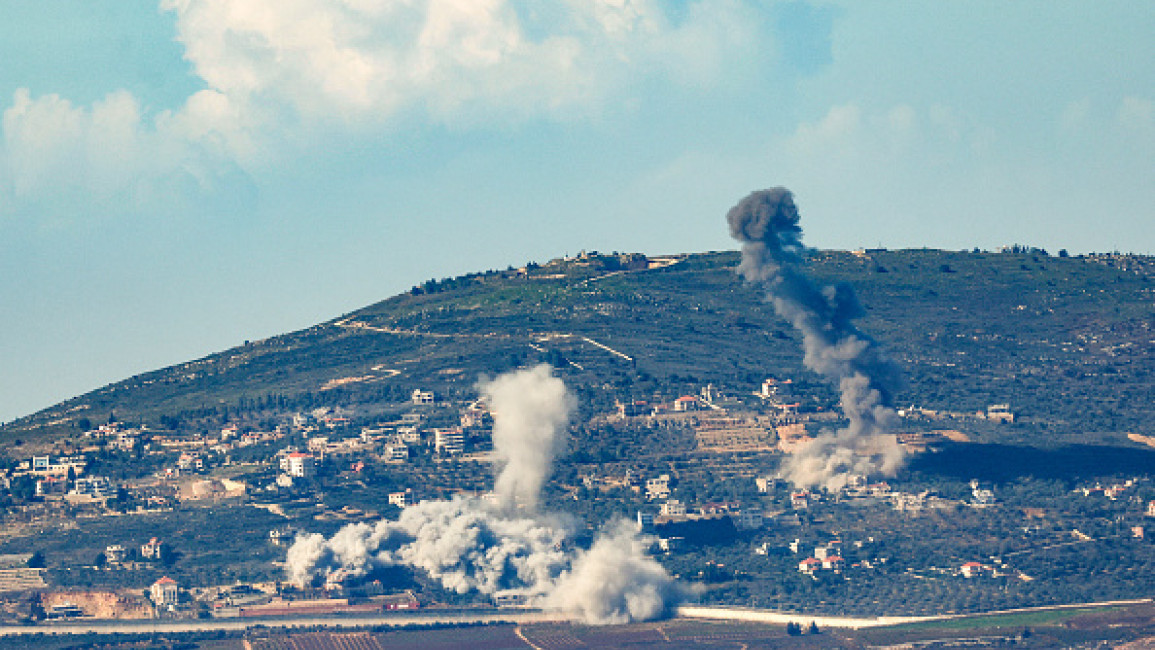Israel defence minister says strikes on Hezbollah wont stop even if Gaza truce reached
Israel’s Defence Minister Yoav Gallant said Friday that the Israeli army would not stop its attacks on Hezbollah along the Lebanese border, even if a truce comes into effect in Gaza.
"It is a big mistake for Hezbollah to believe that Israel will stop firing at it if the Gaza war stops," Gallant said during a visit to a military unit near the Lebanon frontier.
"I am saying here quite frankly: as long as we do not reach a situation where settlement residents can live safely, we will not stop firing."
He was referring to the hundreds of thousands of residents of northern Israel which have been forced to evacuate from their homes since Israel and Hezbollah began fierce cross-border clashes at the onset of the Gaza war.
Gallant said the Israeli army was on high alert along the Lebanese and Israeli-annexed Golan Heights fronts, warning that "the noses of planes are directed north in anticipation of any accident that may occur."
Nearly four months of fighting – the worst since the 2006 summer war between Hezbollah and Israel – have killed more than 200 people in Lebanon.
Most of those killed in Lebanon have been Hezbollah fighters, but 25 civilians, have also been killed, among them three journalists.
Hundreds of thousands of Lebanese have also been forced to leave their towns and villages in southern Lebanon, fleeing Israeli artillery and airstrikes.
On the Israeli side of the border, nine soldiers and six civilians have been killed, according to Israeli officials. Hezbollah’s Secretary General Hassan Nasrallah claims that the actual number is much higher.
Nasrallah, whose party is backed by Iran, has said its confrontation with Israel was to alleviate pressure on Gaza, describing it as a historic opportunity to liberate Arab territories still occupied by Israel.
Western powers, including the US, France, and the UK, are trying to reinforce the United Nations Security Council resolution that ended the 2006 war, and prevent the fighting from developing into a bigger conflagration.
Resolution 1701 called for all armed personnel to pull back north of the Litani River, some 30 kilometres (20 miles) from the border with Israel, except for Lebanese state security forces and UN peacekeepers.
Israel has warned that it will take military action to force Hezbollah back from the border if diplomatic efforts fail. Hezbollah had previously signalled its willingness to endorse a diplomatic solution, but only after Israel ends its war on the Gaza Strip which has killed more than 27,000 people, mostly civilians.
Nonetheless, Hezbollah has said it was fully prepared for any Israeli escalation.
United States Secretary of Defence Lloyd Austin had said on Friday that he did not see an all-out conflict materialising between Israel, a strong US ally, and Hezbollah, designated a terrorist organisation by Washington.


![Minnesota Tim Walz is working to court Muslim voters. [Getty]](/sites/default/files/styles/image_684x385/public/2169747529.jpeg?h=a5f2f23a&itok=b63Wif2V)




![Debris near Rafic Hariri International Airport [Getty]](/sites/default/files/styles/image_330x185/public/2176162423.jpeg?h=a5f2f23a&itok=MCSK9mkM)
![An Israeli air strike on Jabalia killed teenage journalist Hassan Hamad [Screengrab/X]](/sites/default/files/styles/image_330x185/public/2024-10/hassan%20hamad1.jpg?h=c12e0b96&itok=Rd_dyCVp)
